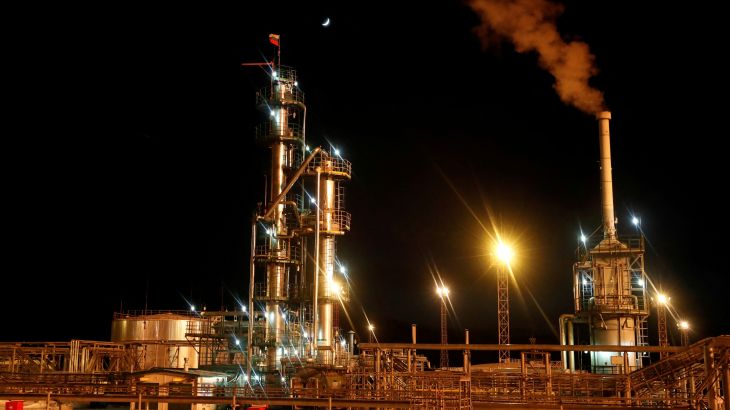European Union bans Russian diesel, oil products over Ukraine
Move comes after the bloc found new supplies of diesel from the US, Middle East and India to replace Russian energy supplies.

Europe has imposed a ban on Russian diesel fuel and other refined oil products, slashing energy dependency on Moscow and seeking to further crimp the Kremlin’s fossil fuel earnings as punishment for invading Ukraine.
Sunday’s ban comes along with a price cap agreed by the Group of Seven (G7) allied countries – the United States, Britain, Germany, France, Italy, Japan and Canada.
Keep reading
list of 4 itemsFresh US sanctions target Russia’s Wagner mercenary group
Japan tightens Russia sanctions, expands export ban list
Ukraine sanctions dozens of Russian artists, public figures
The goal is allowing Russian diesel to keep flowing to countries such as China and India and avoiding a sudden price rise that would hurt consumers worldwide while reducing the profits funding Moscow’s budget and war.
Diesel is key for the economy because it is used to power cars, trucks carrying goods, farm equipment and factory machinery. Diesel prices have been elevated because of recovering demand after the COVID-19 pandemic and limits on refining capacity, contributing to inflation for other goods worldwide.
The new sanctions create uncertainty about prices as the 27-nation European Union finds new supplies of diesel from the US, Middle East and India to replace those from Russia, which at one point delivered 10 percent of Europe’s total diesel needs. Those are longer journeys than from Russia’s ports, stretching available tankers.
Neil Atkinson, a former International Energy Agency analyst, told Al Jazeera the EU sanctions on Russian products were unlikely to have a big impact on prices, at least initially.
This is because companies worldwide have been building up stocks of Russian products ahead of the well-advertised ban, Atkinson said.
“There is the possibility that if demand growth is very strong in the Asian economies … we could find that the lack of investment in parts of the oil industry infrastructure could lead to shortages and spikes in prices,” he said.
G7’s price cap
The G7 price cap of $100 per barrel for diesel, jet fuel and petrol is to be enforced by barring insurance and shipping services from handling diesel priced over the limit. Most of those companies are located in Western countries.
It follows a $60-per-barrel cap on Russian crude that took effect in December and is supposed to work the same way. Both the diesel and oil caps could be tightened later.
The diesel price cap will not bite immediately because it was set at about what Russian diesel trades for. Russia’s chief problem now will be finding new customers, not evading the price ceiling. However, the cap aims to prevent Russian gains from any sudden price spikes in refined oil products.
Analysts say there might be a price bump initially as markets sort out the changes. But they say the embargo should not cause a price spike if the cap works as intended and Russian diesel keeps flowing to other countries.
Diesel fuel at the pump has been flat since the start of December, costing 1.80 euros per litre ($7.37 per gallon) as of January 30, according to the weekly oil market report issued by the EU’s executive commission. Pump prices in Germany, the EU’s largest economy, fell 2.6 cents to 1.83 euros per litre ($7.48 per gallon) as of January 31.
The ban provides for a 55-day grace period for diesel loaded on tankers before Sunday, a step that aims to prevent ruffling markets. EU officials say importers have had time to adjust since the ban was announced in June.
Russia earned more than $2bn from diesel sales to Europe in December alone as importers appear to have stocked up with added purchases ahead of the ban.
Europe has already banned Russian coal and most crude oil, while Moscow has cut off most shipments of natural gas.